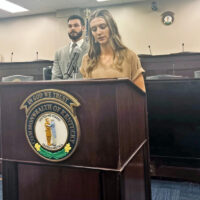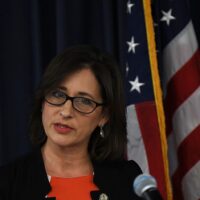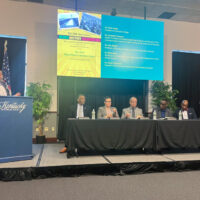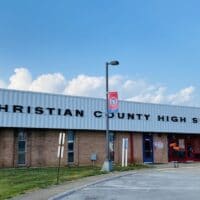Just a few weeks ago I drove from rural southwest Washington to the Dakotas. As we drove across the West, we made a point to stop in small towns and drive on reservation lands. I was awestruck by the incredible natural beauty and overwhelmed by the heartbreaking poverty.
One of the highlights of the trip was stopping in Kimball, South Dakota, where my dad was born nearly 100 years ago. My dad passed away at 96. His folks moved to the Pacific Northwest because there were jobs in the 1940’s while he was serving in World War II as a fighter pilot in the South Pacific. Like so many small towns across America, Kimball is struggling. The population is shrinking, and Main Street is a mix of empty buildings and small businesses trying to make it.
Dad would talk about the garage that Grandpa worked in. Grandpa was a kind and generous family man with a third-grade education. Growing up they did not have much. Our family is an example of what some people think of as “living the American Dream” — the ability to lift your family out of poverty in just a few generations due to things like public education and effective government programs.
The mythology of the American dream passed down in families and in history classes is that if you worked hard and accessed things like the GI Bill and other government programs, you could achieve anything. While that was true for white families like mine, most families in communities of color were not able to live this same dream.
Over the past few years our nation has witnessed the fragility of our democracy, global threats to our health and planet, and America legacy of institutional and structural racism.
Right now, we have a chance to “Build Back Better.” While the Biden administration is working hard to create a more representative government at the highest levels, undoing hundreds of years of structural racism that have shut so many will take significant investment and hard work. It requires questioning past assumptions and recognizing the fundamental failures of imperfect institutions and government systems.
As an example, according to the USDA:
In 2018, all of the extreme poverty counties were in rural America. These counties are not evenly distributed, but rather are geographically concentrated and disproportionately located in regions with above-average populations of racial minorities. Several extreme poverty counties, for instance, were found in South Dakota, with six counties where Native Americans made up more than 50 percent of the population. These counties were also found in Mississippi, including four counties where there has historically been a high incidence of poverty among the African-American population.
As part of the new leadership at the USDA, a comment period to identify barriers in Programs and Services – Advancing Racial Justice and Equity and Support for Underserved Communities was opened on June 15 and closes on July 15. So far there are only 80 comments and on brief review many were opposed to USDA even asking the question.
USDA funds a broad range of programs including housing/food security/rural development and many, many more that impact both urban and rural communities where addressing racial justice and equity are central to addressing the core issues facing these communities.
The fact that the USDA is doing this is progress. I invite you to join me in making a comment to show that people are paying attention. To “build back better” the USDA needs to center its work by directly asking the people they seek to serve. Tapping into the collective shared experiences of communities which have struggled historically with the hurdles of institutional and systemic racism is key to fostering equity and racial justice going forward. Here is the link.
Teresa Purcell is a consultant and trainer who focuses on working in rural America and with people of color.





